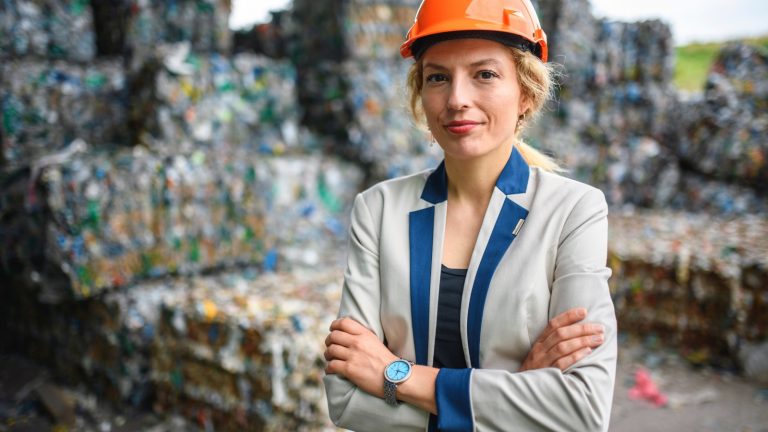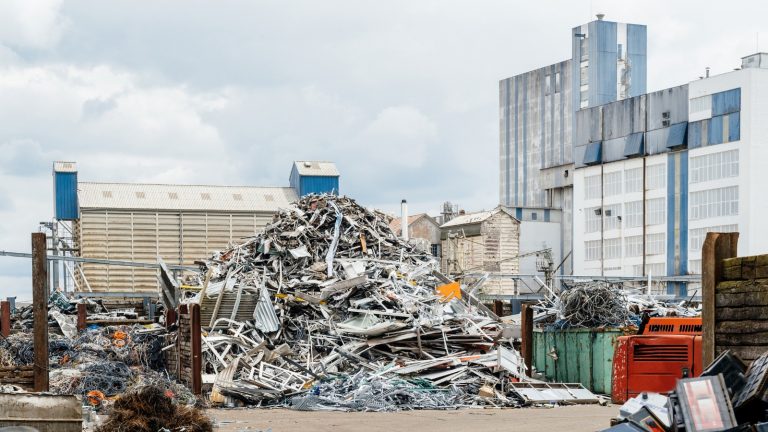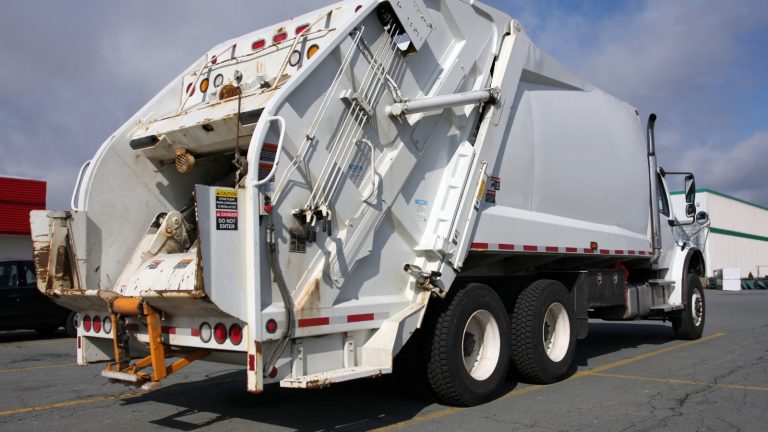Waste is the number one concern when it comes to business-world operations all over the world. Singapore is no exception in that case. As a country that is highly focused on sustainability and environmental protection, Singapore encourages its companies to choose a path that is powered by waste reduction implementations and innovations. The ones who grab the essence of this strategic planning win, while others suffer from unwanted expenditure, loss of energy, and earning black marks from the government authorities.
What is the difference between regular waste and industrial waste? Will it actually be beneficial for businesses to manage their waste in creative ways? Come, let us walk you through everything in our article.
We will understand
What is Industrial Waste Management?

- First, we need to understand that regular waste management and industrial waste management are two different aspects. It is true that waste indicates the same thing, but the types of waste we are talking about in these two areas are totally different.
- What is that difference? Normal waste management primarily deals with household or municipal waste, focusing on collection, recycling, and disposal. On the other hand, industrial waste management involves handling waste generated by industrial processes. This usually contains some threatening substances, such as chemicals, toxins, and all. Unlike household waste, this requires specialised treatment methods, regulatory compliance, and risk mitigation measures due to its potential environmental and health impacts.
- If you look into industrial waste management more deeply, we can see it refers to the systematic handling, treatment, and disposal of waste generated by industrial processes. This includes various activities such as waste collection, segregation, recycling, and proper disposal to mitigate environmental and health risks. But in a systematic way!
- Why is there so much talk about industrial waste management in today’s world? It is important due to its significant impact on environmental sustainability, public health concerns, regulatory compliance, cost reduction, etc. When you are powered by effective waste management practices, it not only minimises pollution and resource depletion but also enhances operational efficiency and cost-effectiveness for businesses.
- As you can see, poor management of industrial waste can lead to negative effects on the environment, legal consequences, and reputational risks, which can impact the profitability and continuity of business operations. The present commercial context in Singapore requires the prioritisation of solid industrial waste management strategies in order to preserve stakeholder confidence. There is no need to highlight that it satisfies legal obligations and eventually supports sustainable development.
Top 6 Benefits of Industrial Waste Management

Environmental Protection
Obviously, the number of benefit of a properly executed industrial waste management plan is the protection of the environment. But how can it be achieved? This contributes to environmental protection by mitigating pollution and minimising adverse impacts on ecosystems.
As we mentioned before, through proper handling, treatment, and disposal of industrial waste, harmful substances such as toxic chemicals, heavy metals, and pollutants are prevented from contaminating air, water, and soil. When a company implements effective waste management practices, including recycling and resource recovery, it reduces the need for raw material extraction and energy consumption, conserves natural resources, and mitigates habitat destruction.
Also, manufacturing plants contribute to the preservation of ecological balance and biodiversity by putting pollution control measures into place and following waste management standards.
This hints that industrial waste management plays a vital role in safeguarding environmental quality and mitigating climate change effects progressively. This leads to promoting sustainable development for present and future generations, even hundreds of years from now on!
Public Health Improvement
When a business is associated with heavy manufacturing processes, one of the major concerns is how it will affect public health. Do you agree? As much as the environment gets polluted by industrial outputs, there are major health concerns that will grow into uncontrollable outbreaks.
When it comes to industrial waste management it helps improve public health by reducing exposure to hazardous substances and pollutants. This is not challenging, especially if your company has implemented a well-designed plan. Proper handling and disposal of industrial waste prevents contamination of air, water sources, and soil. When these elements are not up to health standards, they can cause respiratory diseases, cancers, and other health problems, according to the experts.
The solution to this is to implement waste management practices such as segregation, treatment, recycling, etc. It will help minimise the release of harmful chemicals and toxins into the environment, lowering the risk of health issues for nearby communities.
When public health concerns are taken into consideration during the initial stages of the operational framework, it will be easy for the responsible parties to prevent this risk. Otherwise, you will have to reverse the whole process.
Resource Conservation
We know that not all the resources in this world are unlimited. Some of them are very limited, and there are no alternatives identified either. In such a situation, the business world should think twice before executing its operations. This is where the circular economy comes into play!
Industrial waste management is an outstanding way to assist resource conservation by promoting the reuse, recycling, and recovery of materials from waste streams. Through practices such as waste segregation, treatment, and recycling, valuable resources like metals, plastics, and organic materials can be recovered and reintegrated into production processes. This certainly reduces the demand for virgin raw materials.
This reduces energy use and greenhouse gas emissions related to raw material extraction and processing, in addition to conserving natural resources.
Likewise, industrial waste management lessens pollution in the environment and eases the strain on limited waste disposal capacity by diverting garbage from landfills and incinerators.
Compliance with Regulations
We know that Singapore is a country where they put a heavy weight on regulatory compliance. When it comes to sustainability and waste reduction, these laws and regulations are highly strict.
When you decide to opt for industrial waste management, it 100% ensures compliance with regulations. Let us explain how. This way, you can look into the gaps in the regulatory background of your business and implement proper handling, treatment, and disposal practices according to certain legal requirements. This is not all! Adhering to waste management regulations clears the road for businesses to avoid fines, penalties, and legal liabilities associated with non-compliance.
How can this be done? This includes obtaining permits, conducting regular monitoring and reporting, and implementing pollution prevention measures to minimise environmental impacts. When you comply with regulations, it makes the route for the company transparency and accountability, showing that you place the necessary value on the legal system in Singapore.
Cost Reduction
One of the major concerns in the business realm is maximising ROI. How exactly can you achieve this when your expenditure on some processes is high? This is where the importance of industrial waste management comes in!
It reduces costs through various avenues. Let us elaborate on this deeply for you. At the initial stage, by implementing waste minimisation strategies such as recycling and resource recovery, businesses can decrease the volume of waste requiring disposal. This effort leads to a reduction of associated disposal fees and transportation costs by up to 50%.
On the other hand, efficient waste management practices optimise resource utilisation, which encourages businesses to extract value from waste materials. This act potentially generates revenue through the sale of recycled or recovered materials.
As you can see, it not only reduces costs but also gives you another sort of income path.
Enhanced Sustainability
Sustainability has received a new tag! This has been removed from the list of optional items and added to the list of essentials within the last decade. The good thing about industrial waste management is that it contributes to sustainability as it promotes the responsible use of resources, minimising environmental impacts within the operational framework. On the other hand, it backs up long-term economic viability.
A business can implement many strategies for sustainability. Practices such as waste reduction, recycling, and pollution prevention are at the top of that list. Industrial waste management conserves natural resources, reduces energy consumption, and mitigates greenhouse gas emissions associated with waste disposal, as we stated in the above sections.
When embracing the concepts of the circular economy, companies can close the loop on material flows, reduce dependency on limited resources, and turn waste into useful resources. Plus, these strategies enhance resilience to environmental risks and regulatory changes, ensuring continuity of operations and safeguarding stakeholder interests.
In addition, companies that prioritise sustainability in their waste management strategies show their dedication to CSR, improve their brand’s reputation, and provide value for communities and shareholders.
This is why more and more companies narrow down their complex workflows by using some outstanding sustainability initiatives in the first place. The business world has understood that they cannot think of a better future just by walking on a heavy operational path without caring for a sustained future.
Saving Money and Resources through Proper Industrial Waste Management

It is excellent if you have already executed some outstanding strategies to eliminate your industrial waste. However, you can streamline your efforts by adapting to the latest trends via a proper technology like a waste management system if you like to give it a try. The manual workload is reduced, and the enlightenment you receive through such systems is extremely beneficial. A reputed service provider is what you need if you are worried about the waste you have to deal with during your day-to-day business operations.





